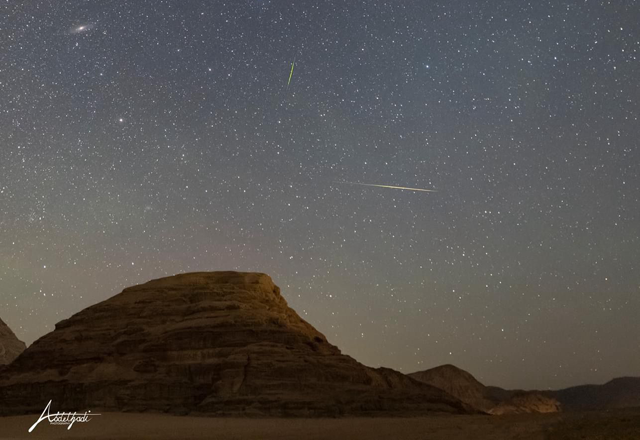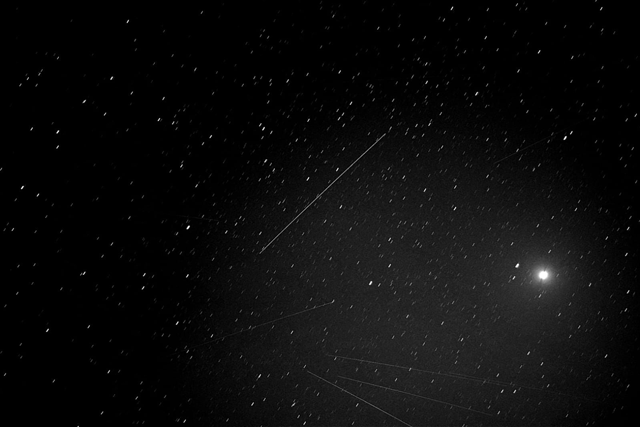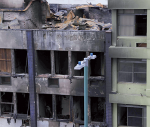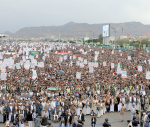You are here
Astronomical delight: Annual Leonid meteor shower to illuminate Jordan’s night skies
By Rayya Al Muheisen - Nov 15,2023 - Last updated at Nov 15,2023

Peak of the meteor shower is expected on the night of Friday-Saturday, November 17-18 (Photo courtesy of Ammar Sakaji)
AMMAN — Meteor enthusiasts and stargazers in Jordan are in for an astronomical treat this weekend as the annual Leonid meteor shower is set to grace the night skies.
Ammar Sakaji, president of The Jordanian Astronomical Society told The Jordan Times that the peak of the meteor shower is expected on the night of Friday-Saturday, November 17-18, 2023.
“The Leonid meteor shower, known for its swift and bright meteors, will be particularly active this year from November 6 to November 30,” Sakaji added.
Sakaji added that the optimal viewing times are anticipated to be in the pre-dawn hours, visible in most regions across Jordan and the Arab world, especially in areas far from light pollution, such as deserts and rural areas.
According to studies by the International Meteor Organisation, observers may witness between 10 to 15 meteors or fireballs per hour during the peak period, given standard and ideal astronomical conditions, said Sakaji.
It’s important to note that the Leonids are a meteor shower rather than a meteor storm, and they typically radiate from the constellation Leo, specifically above the binary star Regulus, serving as a clear marker in the sky. However, this does not preclude sightings of meteors in other directions.
Sakaji added that on Saturday night, the radiant point of the Leonid meteor shower is expected to rise at 11:56pm Jordan time at an angle of 63 degrees towards the northeast. “The prime time for observing these meteor showers on this night is during the pre-dawn hours, roughly between 4:00am and 5:00am, when the radiant point will be at an elevation angle of 65 degrees in the east,” said Sakaji.
Sakaji noted that the moon is expected to set at 9:04pm on Friday evening, just before the appearance of the radiant point, providing optimal conditions for meteor observation without lunar interference. Observations are expected to begin with the rise of the radiant point at 11:56pm on Friday, with initially low meteor visibility, increasing before sunrise on Saturday morning.
“In November 1999, the International Meteor Organisation declared Jordan as one of the best global locations for observing the Leonid meteor storm,” Sakaji added.
In response, the Jordanian Astronomical Society, in collaboration with the International Meteor Organisation, organised a global camp and conference attended by experts and astronomers from various countries, publishing scientific research on this phenomenon.
The Leonid meteor shower is a distinctive and captivating astronomical phenomenon caused by the interaction of Earth with the debris of the Tempel-Tuttle comet, said Sakaji.
Related Articles
AMMAN — Jordan’s sky will witness the peak of the Geminids meteor shower on the evening of Thursday, extending into Friday, according to the
Observers can watch the Eta Aquarid meteor shower during the pre-dawn hours on Wednesday, especially between 2:00 and 2:30am, Chief Islamic Justice Department Astronomer Imad Mujahed said on Monday.
AMMAN — The Kingdom will witness the “largest and most intense meteor showers of the year” on Saturday and Sunday, with more than 120 meteor

















